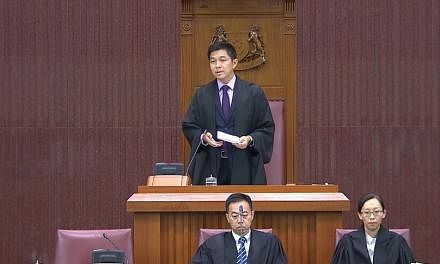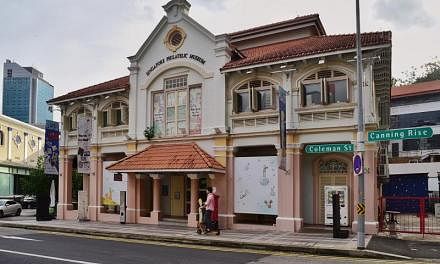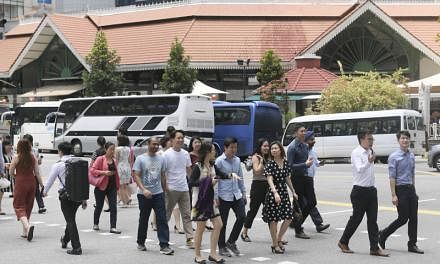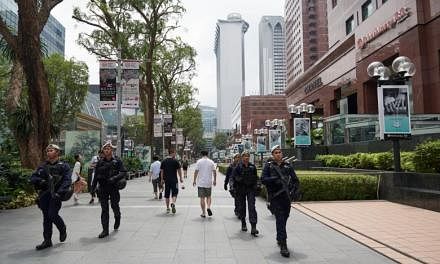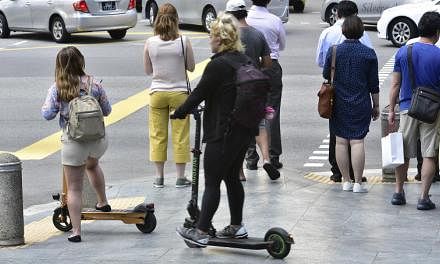The Government has taken steps to manage its expenses even as spending needs grow, particularly in healthcare, security and infrastructure, said Mr Lawrence Wong, Second Minister for Finance, yesterday.
The growth in ministries' annual budgets will be reduced starting from this financial year, said Mr Wong. This comes on top of a move to permanently cut the budget caps of all ministries and organs of state by 2 per cent from 2017.
"We have and we will continue to manage expenditure growth carefully," said Mr Wong, who is also National Development Minister, during the debate on the budget for the Finance Ministry.
Mr Wong was responding to Mr Liang Eng Hwa (Holland-Bukit Timah GRC) and Ms Foo Mee Har (West Coast GRC), who raised concerns about fiscal sustainability.
Ms Foo said Singapore has come to rely heavily on the Net Investment Returns Contribution (NIRC) framework, which paid for about a fifth of the Republic's total spending last year.
The NIRC framework allows the Government to spend half of the long-term investment returns generated by the Monetary Authority of Singapore, Temasek and GIC, the three entities tasked to manage and invest the reserves.
Ms Foo said: "This high dependency represents a significant vulnerability, given the volatility of any investment portfolio."
Mr Liang pointed out that spending has increased by about 2.5 times in the past 10 years while revenue, including the NIRC, has grown by about two times in the same period.
If NIRC is excluded, operating revenue would be even lower, he said. "If left unchecked, where expenditures continue to grow faster than revenues, we could end up with a ballooning deficit."
Mr Wong said that other revenue streams have been strengthened, including keeping the goods and services tax (GST) broad-based and increasing tax rates for personal income tax, property tax and stamp duty in recent years.
Corporate tax and NIRC were the biggest contributors to the total government revenue in the last financial year, with each accounting for 18 per cent. Personal income tax and GST made up 13 per cent each, while property-related tax contributed about 10 per cent.
Several other items make up the remainder, Mr Wong said. "Our revenue base is a diversified one, and we are mindful not to be overreliant on any single source."
Mr Wong also addressed Mr Pritam Singh's (Aljunied GRC) question on GIC's performance. Mr Singh had asked about the decline in GIC's 20-year returns in recent years, among others.
A reason for the decline, Mr Wong said, is that the high returns earned in the run-up to the tech bubble in the late 1990s have dropped out of the past 20-year period, while the subsequent bursting of the bubble and decline in asset values have remained in that window.
The investment climate has also become more difficult for fund managers everywhere, he noted.
"Nevertheless, in these challenging market conditions, GIC has done creditably," Mr Wong said, pointing out GIC's returns of 6.6 per cent in US dollar nominal terms over a five-year timeframe.

